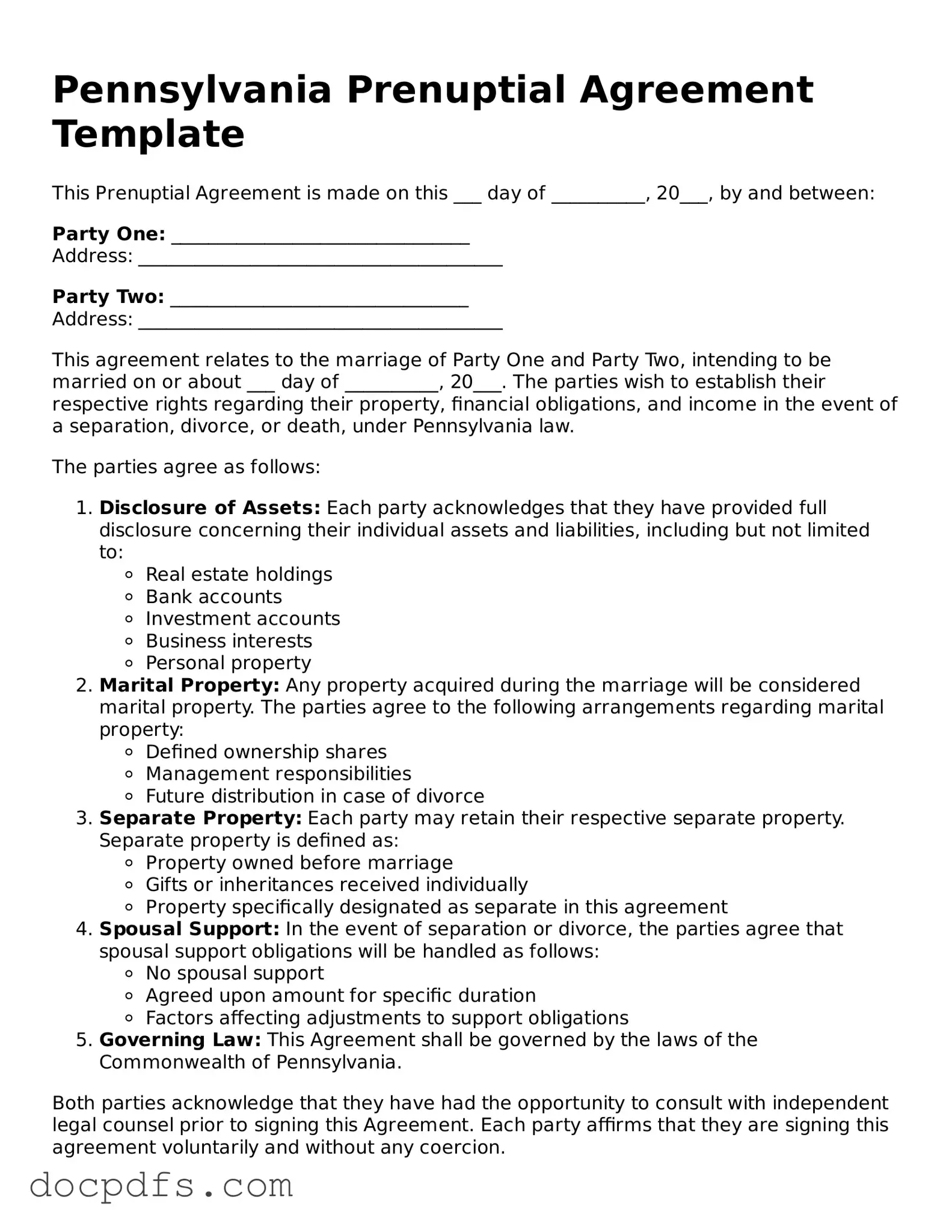What is a prenuptial agreement in Pennsylvania?
A prenuptial agreement, often referred to as a prenup, is a legal document that a couple creates before getting married. This agreement outlines the management of assets, debts, and financial responsibilities during the marriage and in the event of a divorce. In Pennsylvania, prenuptial agreements are recognized and enforceable, provided they meet certain legal requirements.
Why should I consider a prenuptial agreement?
There are several reasons to consider a prenuptial agreement:
-
Protection of individual assets: A prenup can help ensure that personal assets remain separate in case of divorce.
-
Debt protection: It can protect one spouse from the other's debts.
-
Clarity in financial responsibilities: A prenup can outline how finances will be managed during the marriage.
-
Peace of mind: Having a prenup can reduce anxiety about potential future disputes.
What should be included in a Pennsylvania prenuptial agreement?
While each prenup is unique, common elements include:
-
Identification of separate and marital property.
-
Division of assets in the event of divorce.
-
Management of debts and financial responsibilities.
-
Provisions for spousal support or alimony.
-
Any other financial matters relevant to the couple.
Are there any restrictions on what can be included in a prenuptial agreement?
Yes, there are certain limitations. For instance, a prenup cannot include provisions that are illegal or against public policy. Additionally, agreements regarding child custody and child support cannot be determined in a prenup, as these issues are subject to court review based on the child's best interests.
How do I create a valid prenuptial agreement in Pennsylvania?
To create a valid prenuptial agreement in Pennsylvania, follow these steps:
-
Discuss your intentions and expectations with your partner.
-
Draft the agreement, ensuring it is clear and comprehensive.
-
Both parties should have independent legal counsel to review the agreement.
-
Sign the agreement in the presence of a notary public.
Can a prenuptial agreement be modified or revoked?
Yes, a prenuptial agreement can be modified or revoked at any time, as long as both parties agree to the changes. It is advisable to document any modifications in writing and have them signed and notarized to ensure their enforceability.
What happens if a prenuptial agreement is challenged in court?
If a prenuptial agreement is challenged, the court will evaluate its validity based on several factors, including:
-
Whether both parties entered into the agreement voluntarily.
-
Whether there was full disclosure of assets and liabilities.
-
Whether the terms of the agreement are fair and reasonable.
If the court finds the prenup valid, it will be enforced according to its terms.
When should I start discussing a prenuptial agreement with my partner?
It is best to discuss a prenuptial agreement early in the engagement process. Open and honest communication about finances and expectations can help strengthen your relationship. Waiting until closer to the wedding date may create unnecessary stress and pressure.
Is a prenuptial agreement only for wealthy individuals?
No, prenuptial agreements are not just for wealthy individuals. Anyone can benefit from a prenup, regardless of their financial situation. It provides a framework for managing assets and responsibilities, which can be particularly important for those with significant debts, business interests, or children from previous relationships.

